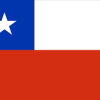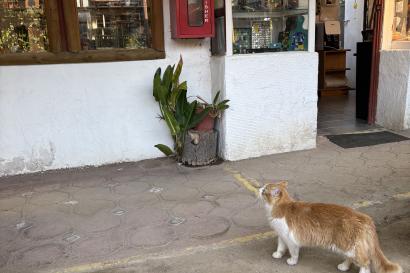Every person in Chile has healthcare. There are a few different tiers but in general the plans are separated into FONASA and ISAPRE. FONASA roughly translates to ‘Basic National Health’. ISAPRE represents private insurance companies, and the acronym stands for ‘Institutions of Provisional Health’. This system covers less than 6% of Chileans—everyone else is under one form or another of FONASA. Our insurance under IES Abroad is considered ‘particular,’ so we pay in full and make claims afterwards.
Last semester I spent a few hours in the emergency room after an anxiety episode. I have never paid so little for an emergency room visit. I got an IV and a few tests, and it was less than $400.
Towards the beginning of this second semester in Chile I got a kidney infection and went to a few different doctors’ appointments and labs.
Picking up prescriptions was a very different experience here compared with the States. I had to go to a few different ones to get all of my necessary medicines. All I had to do was show them my prescription and they would go look behind the counter for the pills—I’m not sure if it's different for Chileans and more reminiscent of our style of filing prescriptions beforehand. It surprised me that no one checked if I had already gotten those pills, but also shows that Chile must have a very different relationship than the US with opioid and pharmaceutical drug abuse.
In a few months Chile is getting rid of ISAPRE as a form of insurance. The vast majority of people are in FONASA but I am still intrigued to see what the impact will be on the quality of care. The healthcare system was one of the main complaints during the social revolution of 2019.
Something Chile does very well is providing care to foreigners. The most important identifier in Chile is the RUT, which is like a Social Security Number. However RUTs are used for anything from grocery store rewards to filing taxes. Phone plans can only be bought with a RUT—and they’re significantly cheaper than the non-RUT prepaid options. In medical settings, foreigners are provided with a temporary RUT to keep the hospital up-to-date on your medical tests and status. If you go to Argentina though, Chilean prices are cut in half, and they allegedly attend to patients faster.
Private hospitals, which also treat patients more quickly and more completely, are called clínicas here in Chile. Public facilities for receiving health services are called hospitales. These centers are unique because they have pharmacies on-site. The waits at hospitales can truly take hours, and the level of care is high, but definitely lower than that of the clínicas. I used to pass one location that always had a line out of its gate, no matter what time of day.
In the US, normally we go to the closest place or depending on the urgency, the location that has the best branch of whatever services are most needed. When my host mom’s husband got sick, they had to request for him to be treated in a clínica closer to their house. They had a lower tier of ISAPRE and weren’t technically supposed to use this location’s services. Many people don’t have the time or notice to ask ahead for use of closer or higher quality healthcare.
Birth control is expensive here in Chile, and not included in insurance or universal healthcare the way it is in the US. The pharmacies I went to here charged less than $5 for each of my prescriptions, only one of which was similarly priced—and didn’t cost much more—in the States. My host mom’s medical devices are cheaper in the States however. In Chile they charge double the price.
There are many nuances to healthcare in different neighborhoods, much less different countries. Comparing these systems makes it hard to not think about what you’re paying versus what you get—no matter where you live.

Maggie Peyton
My name is Maggie and I'm from Chicago, Illinois (one of the best cities in the States in my completely unbiased opinion). I'm left-handed, could watch Encanto every day, and I am a huge fan of the singer-songwriter Mitski. I study Public Policy at the University of Illinois in Chicago and am excited to learn more about Santiago. I hope to find a community away from the one I have at home and make Santiago my own.








